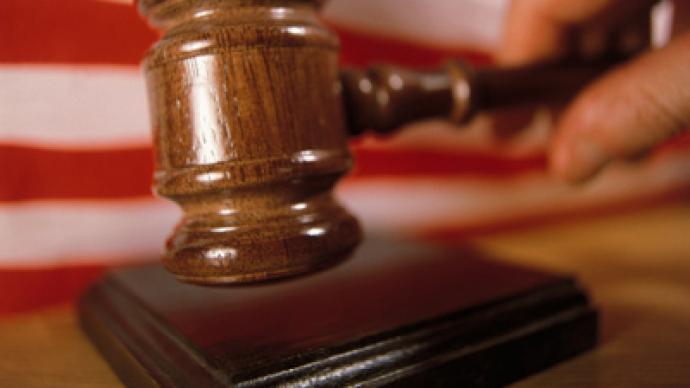US courts already enforcing SOPA-style shut-downs

While activists waging for a free Internet advocate against the possible passing of the Stop Online Piracy Act, or SOPA, the US court system is already favoring big business by thwarting third-party competition without any objections.
In at least three cases recently, the US court system has attacked websites that employed unauthorized usage of a major label’s branding, specifically True Religion clothing, Chanel cologne and Philip Morris. In the latest case filed by the cigarette giant, prosecution for Morris lobbied to have several websites and their contents and funds seized and transferred without the defense ever able to present a case. As Congress debates the provisions that could make up the controversial SOPA bill, it looks as if the US courts are already shutting down websites for what could be considered unauthorized use or infringement without a just trial ever being carried out.In the case against websites advertising allegedly counterfeit Chanel products, a District Court judge in Nevada allowed the legitimate manufacturer to seize around 600 domain names that were related to but not affiliated with the company. Additionally, restraining orders and injunctions were handed to the biggest search engine and Web companies in the world barring sites such as Google and Yahoo! from indexing or linking to the sites in question. In that instance, the federal judge allowed Chanel to seize the domains and transfer them to US-based registrar GoDaddy without any say from the defendants. And, according to the court ruling, those that even “promote” the sale of Chanel goods, legitimate or otherwise, can be added to the injunction and seized in the future. In that instance, attorney Venkat Balasubramani of the Eric Goldman Technology and Marketing Law Blog writes simply, “Wow.”Balasubramani may be surprised, but even more surprising is how rampant these cases are becoming. The third case causing the seizure of competing Philip Morris sites has come within only a month of the other two. Eric Goldman himself adds, “Only hearing one side of the story isn't enough to trigger the kind of draconian remedies the courts are granting.” “That kind of result wouldn't happen with real due process,” adds the associate professor of law from Santa Clara University and administrator of the legal blog.The website Techdirt.com has been following the cases themselves and note that to see the excessiveness in these cases, one doesn’t have to go much further than to realize that, “based solely on the declaration of a Philip Morris employee, the court is ordering the full transfer not just of websites, but of any funds being sent to a website.”In the case of True Religion court ruling, Techdirt calls it essentially a “kill switch” for the allegedly-guilty websites, which were found at fault with once again no due process. Currently Congress is debating whether it should impose a similar cloak over the Internet as a whole, causing for any site to allegedly broadcast copyrighted material to be seized and the administrator to suffer from immense fines and jail time. Given these three cases, however, do we really need the Senate and House to put the stamp on it?"The fight against SOPA [the Stop Online Piracy Act] may be a red herring in some ways," writes Balasubramani, "since IP plaintiffs are fashioning very similar remedies in court irrespective of the legislation. Thus, even if SOPA is defeated, it may turn out to be a Pyrrhic victory — opponents may win the battle but may not have gained much as a result."














